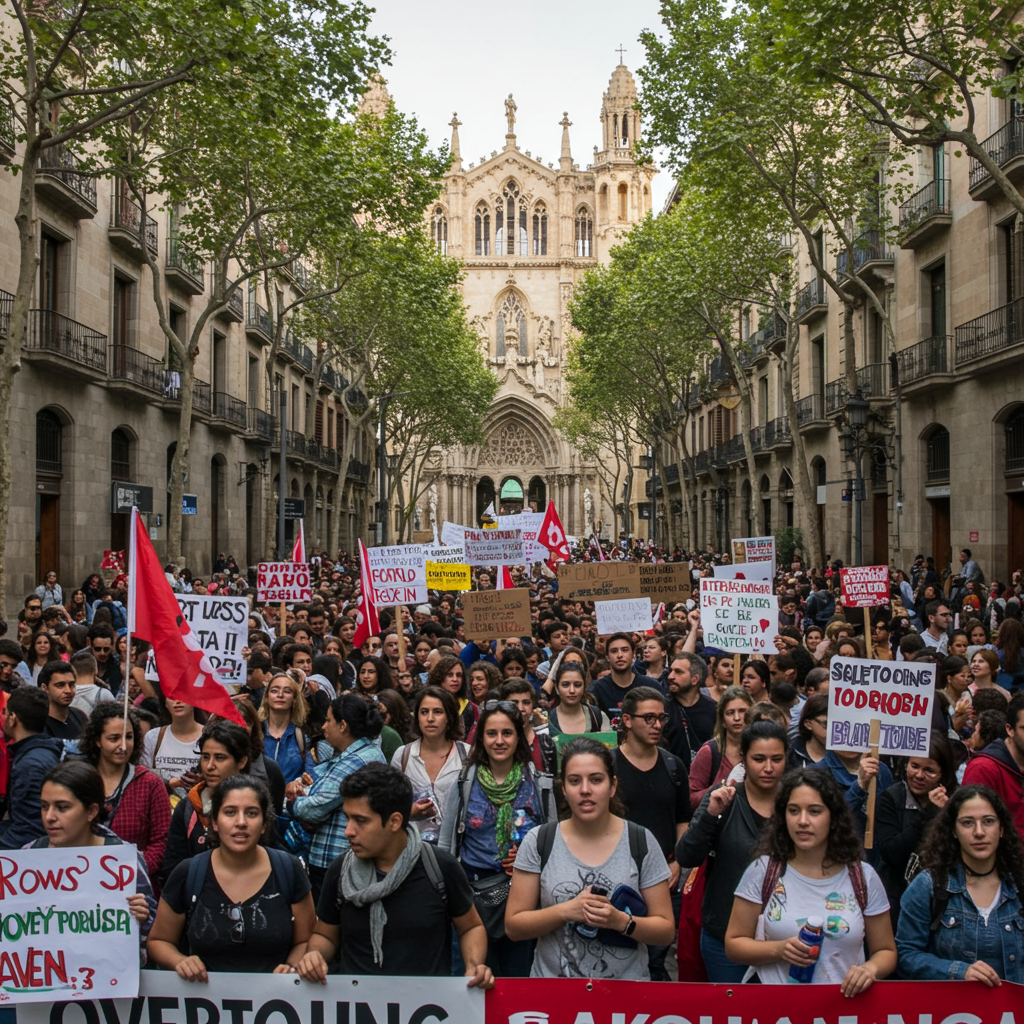Prime Minister Narendra Modi recently addressed the vibrant Indian diaspora in Port of Spain, Trinidad and Tobago, highlighting the profound, shared heritage that links india, particularly the state of Bihar, with those who made the Caribbean their home. This address, delivered during a key leg of PM Modi’s five-nation tour, underscored the deep historical and cultural connections that have endured across generations and continents. The core message resonated around two powerful common threads: the ancestral roots traced back to Bihar and an unwavering devotion to Lord Ram. This strategic outreach aimed to strengthen ties, acknowledge a difficult past, and celebrate the resilience and contributions of the diaspora, reaffirming their vital link to India’s identity and future.
Historic Bonds: The Trinidad & Tobago Diaspora Connection
The story of Indians in Trinidad and Tobago is deeply intertwined with the era of indentured labor. Prime Minister Modi specifically referenced the ‘girmitiyas,’ a term originating from the Bhojpuri dialect, used for the thousands of poor laborers from Bihar who were recruited under often deceptive agreements to work on sugar plantations in unfamiliar lands by British planters. This painful history saw people leaving their homes under duress, bound by exploitative contracts, and embarking on challenging journeys across the seas.
Despite the hardships and the coercive nature of their departure from India, PM Modi praised the extraordinary resilience of these individuals and their descendants. He highlighted how they not only survived but also preserved their cultural identity, faith, and traditions against immense odds. A significant portion of the Indian community in Trinidad and Tobago traces its lineage directly back to Bihar, creating a powerful, enduring link to that specific region of India.
Underscoring this connection, Prime Minister Modi referred to his counterpart, Trinidad and Tobago’s Prime Minister Kamla Persad-Bissessar, as “Bihar ki beti,” meaning “daughter of Bihar.” This personal touch emphasized her ancestral origins in the Buxar district of Bihar, a village she visited in 2012. Such acknowledgements serve to personalize the historical narrative and highlight the living connections that persist at the highest levels.
The Spiritual Anchor: Lord Ram and Shared Faith
Perhaps the most powerful common thread discussed by PM Modi was the enduring devotion to Lord Ram. For many descendants of the indentured laborers, faith in Prabhu Shri Ram and the epic Ramayana remained a central pillar of their cultural and spiritual lives, even thousands of miles away from India. This deep-rooted faith became a source of strength and identity in a foreign land.
The Prime Minister specifically thanked the diaspora for their participation and contributions to the construction of the Ram temple in Ayodhya, India. He mentioned their symbolic contributions, such as sending ‘shilas’ (sacred stones) and holy water from significant rivers for the temple’s construction. This act served as a tangible demonstration of their continued spiritual connection to India and their participation in significant national and religious milestones back home. The reverence for Ramayana and Lord Ram acts as a vital cultural bridge, transcending geographical distance and generations.
Bihar’s Proud Legacy Echoes Globally
Beyond religious faith, Prime Minister Modi proudly asserted Bihar’s historical significance, declaring, “Bihar’s legacy is the pride of India and the world.” He recounted Bihar’s historical role as a source of direction and inspiration for the world centuries ago. He mentioned its contributions to various fields including democracy, politics, diplomacy, and higher education. This emphasis on Bihar’s ancient glory served to instill pride in the diaspora who trace their roots there.
By framing Bihar’s past achievements as a source of global pride, PM Modi connected the diaspora’s regional identity to India’s broader historical narrative and contemporary aspirations. He expressed confidence that Bihar would continue to bring new inspirations and opportunities in the 21st century, suggesting a shared future and continued relevance for their ancestral homeland on the global stage. This narrative reinforced the idea that their origins are linked to a historically rich and future-oriented region of India.
Beyond Faith: Cultural Threads and Future Ties
While Lord Ram and Bihar were central themes, PM Modi also acknowledged other cultural elements that continue to thrive within the diaspora. He noted their sustained love for Indian cuisine and folk music, illustrating the broader cultural package carried by the ‘girmitiyas’. These seemingly small details are vital markers of identity preservation across generations.
The Prime Minister also subtly referenced the historical context of the indentured laborers being lured away from India, connecting it metaphorically to the sport of cricket. This reference resonated with the Caribbean audience’s passion for the sport, while also nodding to the circumstances under which their ancestors left India.
Placing the address within the context of his five-nation tour, which aimed to strengthen India’s engagement with the Global South, PM Modi’s speech in Port of Spain highlighted India’s commitment to its diaspora worldwide. He emphasized cooperation and shared values with nations like Trinidad and Tobago, noting their importance as friendly countries for India. His visit included addressing the nation’s parliament, a significant gesture symbolizing the strong bilateral relationship. He even received Trinidad and Tobago’s highest civilian honour, dedicating it to the people of both nations and the Indian diaspora.
Strengthening Bonds: India’s Outreach to Diaspora
Prime Minister Modi’s address was a clear demonstration of India’s ongoing efforts to connect with and engage its vast global diaspora. Such engagements serve multiple purposes: preserving cultural identity, fostering stronger people-to-people connections, promoting bilateral relations, and leveraging the diaspora’s influence and resources for mutual benefit.
By acknowledging the challenging history of indenture while celebrating the resilience and cultural preservation of the community, PM Modi validated their journey and sacrifices. He described the diaspora not merely as migrants but as “messengers of a timeless civilisation” who carried their culture and faith, including the Ramayana, in their hearts. This framing elevates their status and recognizes their crucial role in maintaining India’s cultural presence abroad. The presentation of holy water from sacred Indian rivers and a replica of the Ram Mandir to the T&T PM further symbolized the deep spiritual and cultural exchange between the two nations and their peoples. The speech successfully wove together threads of history, faith, culture, and contemporary diplomatic engagement to reinforce the enduring bond between India and its diaspora in Trinidad and Tobago.
Frequently Asked Questions
Why did PM Modi emphasize Bihar and Lord Ram in his address?
Prime Minister Modi emphasized Bihar because a significant portion of the Indian diaspora in Trinidad and Tobago traces their ancestral roots to this specific state in India. He highlighted Lord Ram as a powerful symbol of shared faith and cultural heritage that the ‘girmitiyas’ (indentured laborers from India) carried with them across the seas. This focus served to connect with the diaspora’s deep historical origins and enduring spiritual beliefs, acknowledging the specific regional and religious identity they preserved.
Who are the ‘girmitiyas’ mentioned by PM Modi?
‘Girmitiya’ is a term derived from the Bhojpuri language used to describe the indentured laborers, predominantly from Bihar and Uttar Pradesh, who were transported by the British during the 19th and early 20th centuries to work on plantations in various colonies, including the Caribbean nations like Trinidad and Tobago. PM Modi used this term to specifically reference the historical context of the ancestors of the Indian diaspora in Port of Spain, acknowledging their difficult journey and the circumstances under which they left India.
How did the Indian diaspora in Trinidad and Tobago contribute to the Ram temple in Ayodhya?
The Indian diaspora in Trinidad and Tobago contributed to the construction of the Ram temple in Ayodhya by sending symbolic items such as ‘shilas’ (sacred stones) and holy water collected from significant rivers. Prime Minister Modi specifically mentioned this contribution in his address as a way to acknowledge their continued spiritual connection to India and their active participation in important national and religious projects back in their ancestral homeland. This act demonstrated their unwavering faith in Lord Ram.
Conclusion
Prime Minister Narendra Modi’s address in Port of Spain, Trinidad and Tobago, served as a powerful affirmation of the deep and enduring connections between India and its global diaspora. By focusing on the shared heritage of Bihar and the spiritual bond centered around Lord Ram, he resonated with the historical journey and cultural identity of the community. The speech acknowledged the difficult legacy of indentured labor while celebrating the resilience, faith preservation, and ongoing contributions of the descendants. This engagement underscores India’s commitment to its diaspora, recognizing them as vital cultural ambassadors and strengthening the bonds that link India to the world, one historical thread and shared belief at a time.


